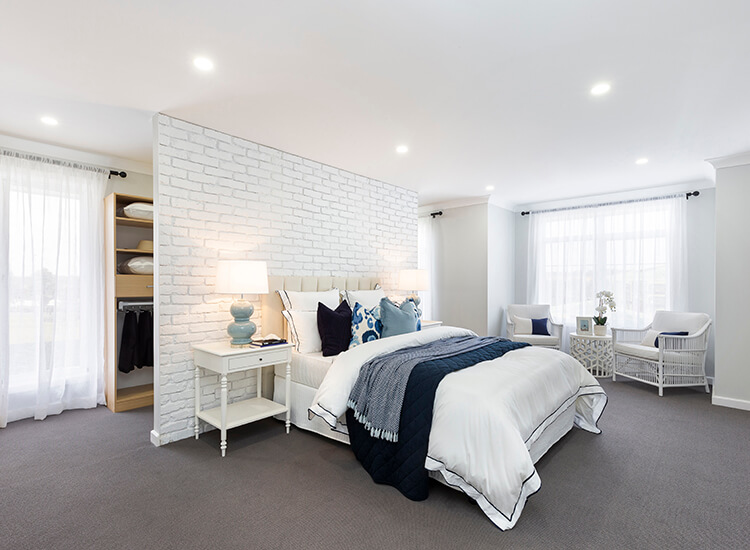Window coverings can make a huge difference to the look, feel and functionality of a house. Abbey Shutters & Blinds consultant, Ashley Cropper, couldn’t agree more. ‘When chosen well, blinds and curtains not only add to the value of your property but add to how comfortable your home feels all year round.’
Here are Ashley’s top seven points to get maximum value from the blinds and curtains you choose.
Budget
Absolutely the first thing to consider is how much you can afford to spend as this will obviously inform your choices. When you’re working out your overall home build budget, treat window coverings as a ‘zone’, just as you would your kitchen or bathrooms. Costs can add up quickly, so don’t fall into the trap of choosing styles before you have a clear idea of how much your budget will comfortably allow.
Purpose
Think about the purpose of the home that needs blinds. Is it a rental property, a ‘flipper’ or your brand new dream home? If it’s a rental, consider window coverings that are practical, low maintenance and in a universal, timeless style that will likely suit most types of décor. If you’re flipping a property by doing it up to put it on the market, then make blinds a real selling point by focusing your efforts on the most important or eye-catching spots such as the façade or back living spaces. When choosing curtains and blinds for a home you’ll be living in, then go for whatever suits your family’s style. For example, if you have young children, think about window coverings that are durable, easy to use and kid-friendly.
Style
It’s a great idea to create a mood board or search on sites such as Pinterest to work out the type of curtains or blinds you like best. Gather pictures together to identify a common style denominator across your choices and use that as a starting point. Generally, window coverings look best when matched to a wall colour or the colour used on architraves for windows and doors.
Light
What aspect does you home have and does it attract abundant natural light? Think about your fence line and whether windows and doors face onto neighbouring buildings. A consultant can work with you to form a bird’s eye view of where to let more light in and where to block it out. For example, bedrooms, media rooms and rumpus rooms need more block-out functionality whereas bathrooms and living areas need more light. Don’t forget that bedrooms generally benefit from both light and privacy control.
Privacy
Think about what privacy you and your family want. Do other houses on the street have a direct line of sight into any room? Can you leverage any natural privacy from large shrubs or trees? Most properties benefit from more privacy at the front of the house because it faces the street. It’s a good idea to choose a product that can rotate or have a double layer so that you can easily dial privacy up or down according to the time of day and what you’re using a room for.
Insulation
Does your home need protection from extremes of hot or cold weather? Do west-facing bedrooms suffer from late afternoon sun? The right type of blind or awning can add significantly to the insulation properties of your home and make it comfortable to be in no matter what the elements throw at it.
Maintenance
Nobody likes to spend more time than they need to cleaning blinds, curtains or awnings, but sometimes the environment can add to the task. For example, if you live on a busy main road or your home is one of the first to be built on an estate, then grit and dust can quickly build up. In that case, opt for window covering options that are easy to access and clean. Oh, and don’t forget to go for styles less likely to catch and retain particles if anyone in your family suffers from an allergy to dust.

